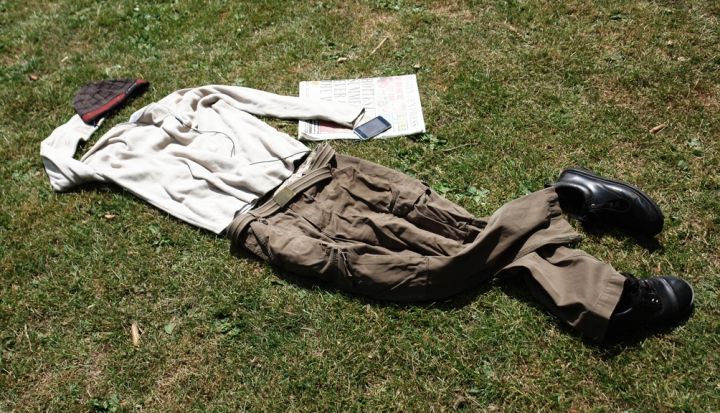The question of what happens to us upon Christ’s return is one that has puzzled Christians since the beginning of Christianity. If you want to see how popular it is today, just do a search for “Rapture” in the catalog of any major bookseller. There are thousands of sources available on the topic of saved Christians who will suddenly be yanked into eternity while leaving the rest of the world baffled and confused. From a Catholic viewpoint, the doctrine is often misunderstood. To clarify the puzzle we must ask this question: On the day of the Rapture, will Christians be coming or going? The popular answer among many evangelicals is that we’ll be leaving on the day of the Rapture. But that’s not what St. Paul thought.
Like many Jews of the first century, Paul used the expression “falling asleep” to describe death. Sheol, the underworld abode of the dead, was believed to be a place without physical or mental activity, an extreme form of suspended animation where even deceased kings were consigned motionless to their thrones (Isa. 14). In this state Christians who died were understood to await Christ’s return in victory and their own resurrection in glory.
According to Paul, at the appointed time and as quickly as “a blink of an eye” (1 Cor. 15:52), the dead would rise. Then the living would be snatched up or carried off immediately afterward in order to meet Christ in the clouds (1 Thess. 4:16-17). In the Vulgate, the early Latin Bible, the word used for God’s plucking us up into the sky was rapiemur, from which we derive the word “rapture.” To understand what would happen next, we must grasp the ancient idea of parousia.
In the Greco-Roman world, a parousia was a celebration of the arrival of someone of distinction. It could be a person of political or military status or a god represented by an idol and accompanied by priests. The church’s liturgical calendar celebrates the triumphant entry of Jesus into Jerusalem on Palm Sunday—a Christian adaptation of a pre-existent practice. It is important to note that such celebrated arrivals were planned in advance. At the appointed time, those being visited by the arriving dignity or deity would go out of the city gate as a sign of welcome and respect. The townsfolk would then process back into the city with the honored visitor, along with devotions or merriment.
When most Christians think of the Rapture today, they imagine the redeemed being snatched up to heaven by Christ as if they have a one-way ticket. But when Paul spoke of being carried off to meet Christ in the clouds, it was not for the purpose of flying away to heaven but to welcome the Lord and return with him in glory. This moment represents the culmination of God’s plan, the great Eschaton, for which all Christians pray when they cry out, “Thy kingdom come.” Our very baptism reminded us of this day: “When the Lord comes, may you go out to meet him with all the saints of the heavenly kingdom.”
This article appeared in the August 2014 issue of U.S. Catholic (Vol. 79, No. 8, page 46).
Have a question you’d like to get answered? Ask us at editors@uscatholic.org!
















Add comment